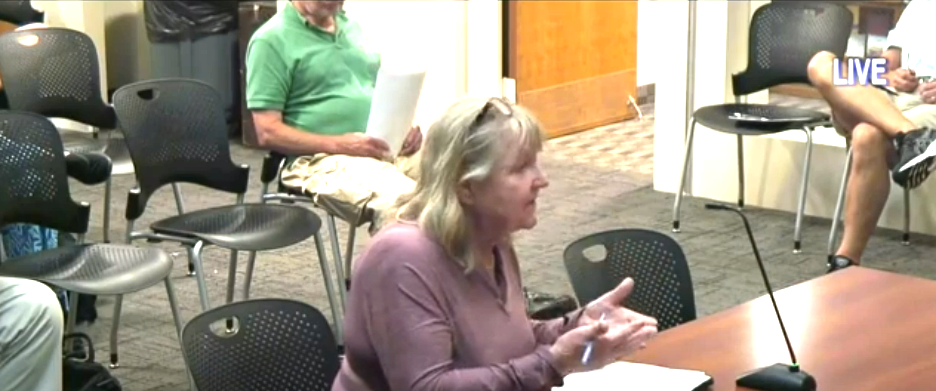
UCTC chair Jane Moran said there has been “miscommunication” about the UCTC’s purpose. PHOTO/HCAM SCREENSHOT
The Select Board on Tuesday voted unanimously to continue the suspension on the Upper Charles Trail Committee until Aug. 1, when the board will continue to discuss the results of a recently released survey on residents’ goals for the committee and the trail.
The Select Board held a joint meeting with the UCTC and the Trail Coordination and Management Committee to discuss the UCTC’s future. A nonbinding vote at May’s Annual Town Meeting called for the dismantling of the current UCTC and its reconfiguration as a TCMC subcommittee. In response, the Select Board created a community survey to better understand what the community expects from the UCTC.
Select Board member Amy Ritterbusch, a member of the survey subcommittee, presented the survey results. Many of the results, she said, were “not very conclusive” because only a small majority preferred one option over others. It was not a scientific survey, and the participation rate was relatively small, with about 200 participants.
“The survey is important,” said Select Board chair Muriel Kramer at the start of the presentation. “But it’s one piece of the conversation, too.”
The most responses were received by people from the Baby Boomer generation, Ritterbusch said, followed by Generation X. More responses were received by people who lived in town for more than 20 years.
Some 45% of respondents called for the UCTC to become a TCMC subcommittee, while 30% wanted the UCTC to remain a separate committee but to be “a new UCTC with an updated charge.” In recent meetings, both the UCTC and TCMC were making suggested revisions to their charges.
The survey showed that nearly half of the respondents had no preference on the number of members the UCTC should have. During previous committee meetings, discussions probed whether the committee should have more or fewer members.
More than 70% stated that there should continue to be liaisons from the Conservation Commission, Parks & Recreation Commission and Select Board. Smaller numbers of respondents called for liaisons from the Planning Board, Commission on Disability and School Committee. The greatest percentage — 82% — called for a TCMC liaison. Meanwhile, 47% of respondents indicated that liaisons should be voting members, while 53% wrote they shouldn’t be or didn’t have a preference. A majority noted that alternate members should be allowed to vote.
According to the survey, desired experience for UCTC members included trail building and construction experience as well as community outreach and public relations. Public engagement previously was pointed out as a flaw in the current committee structure.
Some 41% of respondents called for the trails to be inclusive of all uses, while 27% wrote that they should be limited to specific uses.
“It’s generally leaning towards yes, but not very decisively,” Ritterbush said, calling the result “disappointing to me.”
Trail surfacing was a hot topic in recent meetings. In the survey, 39% called for a mix of stone dust and paved surfaces. Lesser numbers called for one or the other, with more respondents calling for stone dust surfacing.
Transparency was another issue the survey explored, and 93% called for all UCTC meeting minutes to be posted, while 77% called for abutter notifications when a proposed trail route will be discussed at more than one meeting.
After the presentation, Kramer said what is clear from the survey and her attendance at TCMC and UCTC meetings that “this town is committed to trails” as well as connectivity and multiuse paths. The recent differences in perspective veered on how to achieve trail construction and access. What has been lacking, she said, was “community visioning and community outreach,” which in turn eroded public trust.
She added that she personally believed that the two committees should remain separate because they operate under different charges.
“This is a very delicate situation in some ways,” added vice chair Shahidul Mannan. There needs to be “course correction,” he said, but it needs to be “a harmonious process.” He called for the Select Board to be decisive and to act as quickly as possible based on the community’s responses.
Select Board member Mary Jo LaFreniere called for more public participation “and a lot more transparency from both groups ahead of anything that they’re doing.”
One of the most vocal participants at the meeting was Jim Ciriello, the UCTC’s Conservation Commission liaison. During the public comment period, he charged that the proposal to disband the UCTC “has been handled in an arbitrary manner, directed primarily by the TCMC.”
He accused the TCMC of “driving the bulldozer” to disband the UCTC and stressed that UCTC members have not been invited to discussions about its future as a committee.
“Frankly, I’ve really gotten tired as a professional personally of what’s been portrayed of the Upper Charles Trail Committee as having done nothing in all these years,” he said, calling it “absolutely untrue.”
He stressed that the committee has had open meetings, made public presentations, presented maps and had tables at public events. He blamed the public for not being informed despite these efforts. He also said that there were fewer survey participants than the 200 or so Town Meeting members who voted for Article 47 to disband the UCTC. He added that the committees need to be separate and have totally different charges.
Said Ciriello: “If you look at the survey results, where are all the people who so-called overwhelmingly called to disband the committee?”
There may be room for public relations improvements, he conceded. He also stressed that trails should be accessible by all.
In his remarks, Trails Club co-chair Steve Frohbieter challenged Ciriello’s comment about the TCMC prompting the movement to disband and reconfigure the UCTC. [Editor’s note: This has been updated to correct the identity of the speaker.] The conversation began in his living room, Frohbieter said. While there were several TCMC members present, he did not consider it a TCMC effort.
In her remarks, UCTC president Jane Moran stressed that the UCTC has been active for 11 years, and she has served as chair for nine. She showed a 13-page document she compiled of achievements.
What concerned her, she said, was a public misconception that the UCTC is supposed to be building the trail. Its mission, according to the charge, is to plan the trail, which is why engineering consultants were brought into the process.
Said Moran: “There’s just a lot of miscommunication.”
To improve communication, Moran said she had called for a meeting with the Select Board, the UCTC and the TCMC moderated by Town Manager Norman Khumalo about two years ago. She reiterated that request at a May meeting. This meeting has not happened yet. She now called for a professional facilitator.
TCMC chair Peter LaGoy, who proposed the Town Meeting article as a private citizen, said that the TCMC didn’t really start discussing the UCTC until its past two meetings. There were discussions about modifying the TCMC’s charge.
The UCTC should focus on trail building, he stressed. Its members should be chosen by their “interest in a shared-use path index.” He said there should be term limits and joint voting with the TCMC and UCTC on grant applications, route selection and trail surfaces. One TCMC member should be on the UCTC.
UCTC member Ken Parker said he hasn’t agreed with every UCTC decision but believed that the two committees should remain separate.
Said Parker: “Most of that has to do with trying to accomplish something that is nearly impossible to accomplish.”
His “greatest frustration” has been not being able to walk on a UCTC trail segment. He said the committees should work together so that the Upper Charles Trail can be constructed “as quickly as possible.” The proposed trails should be marked, which he said was “a big problem.”
UCTC treasurer Scott Knous said the call for the disbanding of the UCTC came about because of the consideration of two segments that would cross Hayden Rowe Street, which currently are not being considered. While he said it was unfair to say that the UCTC has accomplished nothing, a revision to the structure and approach of the UCTC should be under consideration.
TCMC member Linda Chuss called the survey “confusing” and questioned how the results could be used. She also pointed out that the main complaint against the UCTC is that it hasn’t listened to the public.
The Select Board voted unanimously to consider this information as well as the survey results before its meeting on Aug. 1, when the topic will be revisited. Members said they needed to take the public’s feedback into account before making a decision on whether to disband and then reconfigure the UCTC.


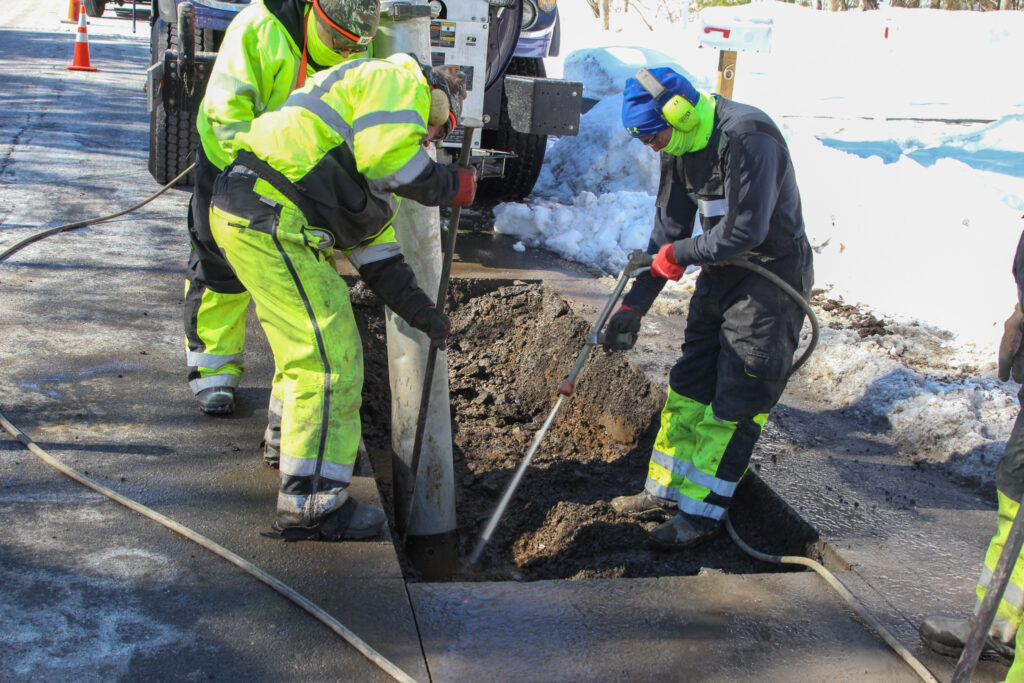
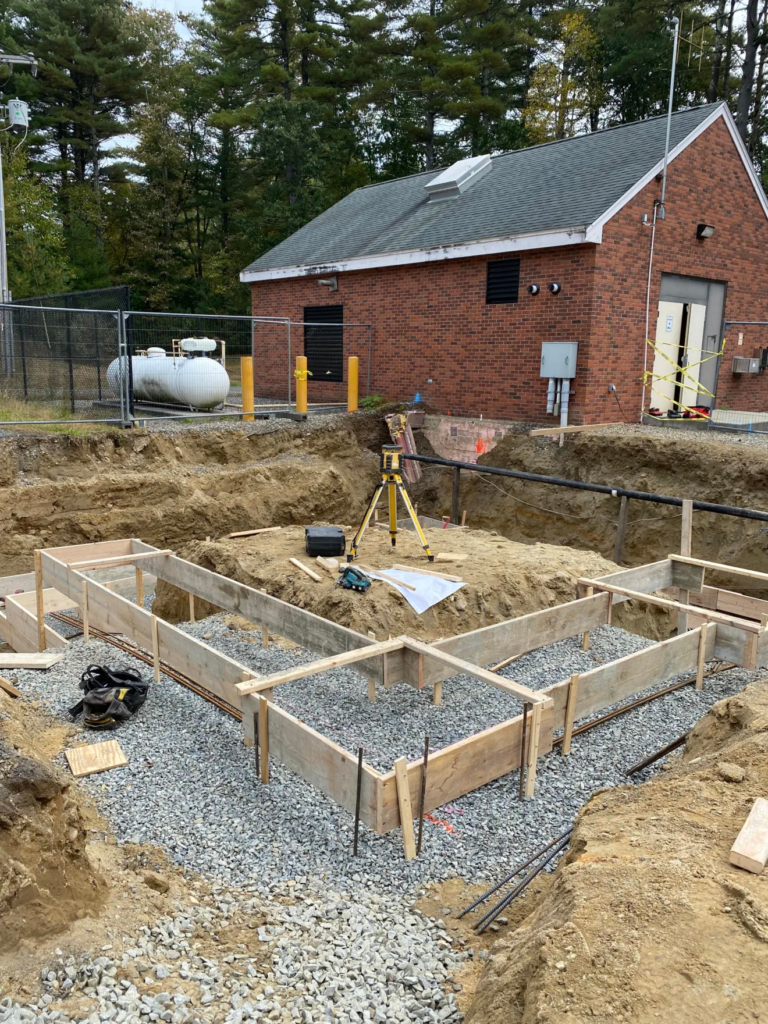

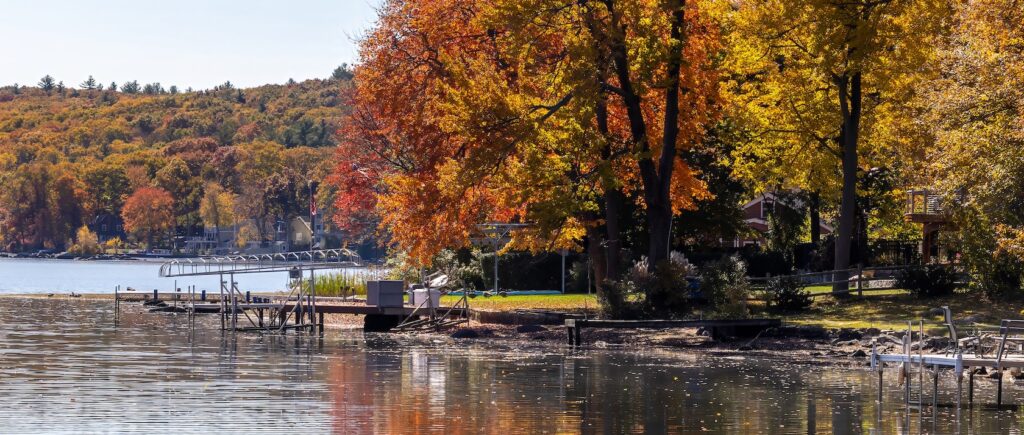
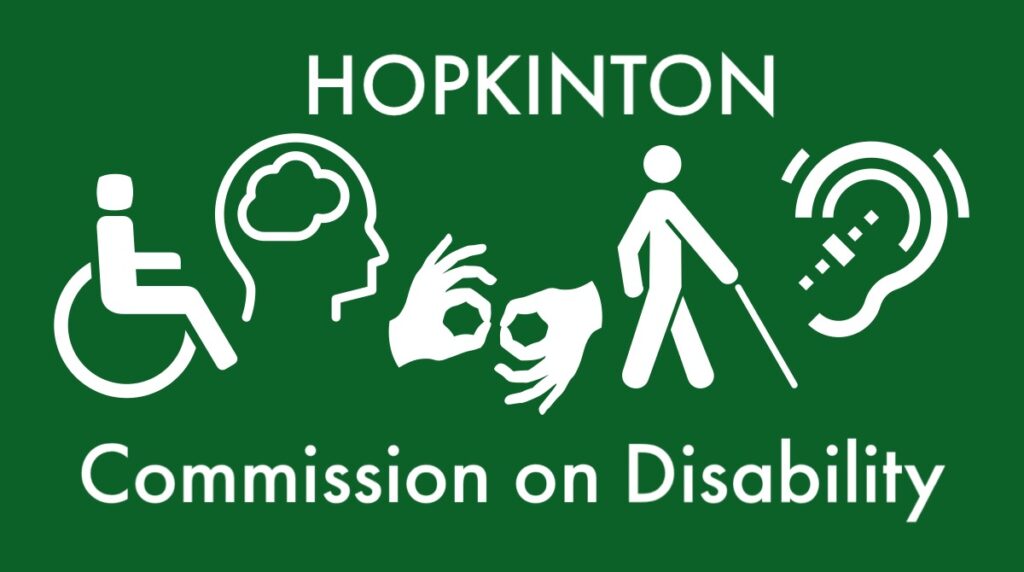













Jim Ciriello issued a profound rebuttal to the UCTC characterizations that have been advanced at numerous public meetings and in the media in the past. It was refreshing to hear those misrepresentations corrected by Jim. His summary was passed along to the Independent. Anyone who is interested in the Hopkinton Upper Charles Trail moving forward should seek and read his summary.